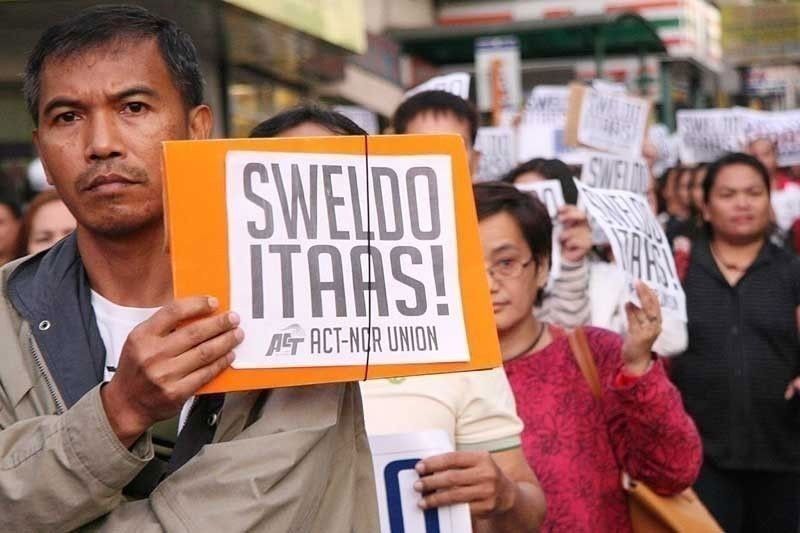PCCI: P100 wage hike to hurt SMEs

MANILA, Philippines — The proposed P100 daily minimum wage increase for private sector workers may hurt small and medium enterprise (SMEs) in the country as it may lead to the reduction of their workforce or even closure, the Philippine Chamber of Commerce and Industry warned.
“The SMEs will be greatly hurt by this P100 wage increase,” PCCI president Enunina Mangio told The STAR in a Viber message.
“A lot of them cannot afford it which might endanger closure if not reduction of workforce,” she said.
Small enterprises are establishments with a total workforce of 10 to 99, while medium enterprises employ 100 to 199 workers, according to the Philippine Statistics Authority.
In the long run, Mangio said the wage increase would lead to higher inflation.
“The effect of wage increase is (an) increase in inflation which will affect everybody,” she said.
“Not to mention that 84 percent (of workers are) not covered by minimum wage because they have no employers. These are the farmers, fisherfolks, tricycle drivers, jeep/bus drivers, vendors, etc,” she said.
On Wednesday, the Senate approved on second reading the bill seeking a P100 daily minimum wage increase for private sector workers.
Senate President Juan Miguel Zubiri said he expects the measure to hurdle third and final reading next week.
He also appealed to members of the House of Representatives to do their part and pass a counterpart measure.
However, employers are strongly opposing the proposed measure, saying that Regional Tripartite Wages and Productivity Boards should decide on wage hikes.
“At the very least, the wage boards where government, labor and employers are represented are guided in their decision to adjust minimum wages by objective parameters following consultations and public hearings,” several business groups said in a letter addressed to Zubiri.
The groups added that even labor organizations tend to rely on the increases granted by the wage boards instead of collective bargaining, which is the most ideal route to negotiate for wage adjustments.
In contrast, legislated wages, while hurting especially the micro, small and medium enterprises, will worsen the plight of the informal sector and its overwhelming 47 million strong presence in the workforce and contribution to the economy.
“We take the cudgels for them who form a preponderant part of the working population. It appears that in the midst of the cacophony of noises arising from the debate on the proposed legislated wage increase, only the five million minimum wage earners matter to the prejudice of 47 million others,” the groups said.
“The bias against them only rubs salt into the injury they have been suffering from for token or lip service from some government instrumentalities or institutions,” they added.
According to the business groups, informal workers will not benefit whatsoever from any legislated wage increase, noting that they will be even more hurt by the higher inflation rate resulting from the proposed legislated minimum wage increase.
“We seriously believe that another wage hike through legislation coming on the heels of the recently implemented minimum wage adjustments through the wage boards is not the appropriate solution to address the underlying challenges faced by our Filipino workers. Its implementation without careful consideration of the consequent economic impact would do more harm than good to both businesses and employees,” the groups said.
Instead of focusing on wage increases, the groups urged policymakers to adopt a more comprehensive approach to addressing economic inequality.
“This includes investing more in education, skills development, and infrastructure, as well as creating an enabling environment for business growth and job creation. It also means passing legislation to once and for all solve low productivity, poor governance, excessive regulations, worsening poverty and serious income inequality which characterize a country with a large informal sector,” the business groups said.
Moreover, the groups emphasized the importance of fostering constructive dialogue and collaboration among all stakeholders, including employers, employees and government representatives, to develop policies that promote equitable and sustainable economic growth and shared prosperity for all.
- Latest
- Trending
































